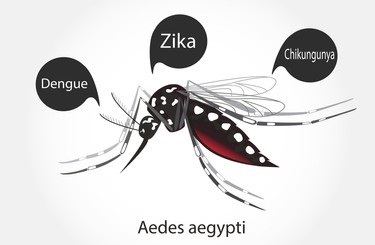Mosquitoes are a worldwide health pest, transmitting many diseases such as malaria, filariasis, epidemic BSE, dengue fever, and West Nile fever, causing a large number of deaths worldwide each year.
The Zika virus outbreak in South America caused by Aedes aegypti in 2016 was classified as an international public health event by the World Health Organization and received widespread attention worldwide.
The spread of mosquitoes to major infectious diseases seriously endangers human health and development and poses a great threat to global public health.

With the introduction of organochlorine insecticide DDT, followed by a variety of quick-kill, long-lasting, convenient chemical insecticides applied to mosquito vector control.
During the decades of insecticide use, the development of mosquito resistance has become a major challenge for mosquito vector control. The development of resistance to mosquitoes has become a major challenge in mosquito vector control, and the precise knockout and editing of mosquito vector genes for control purposes has become a new direction in mosquito vector control research.
The invention and rapid development of gene editing technologies, especially the advent of CRISPR/Cas 9, has greatly facilitated the development of gene editing-related research. Lifeasible has used gene editing technologies to modify mosquito vectors for three main purposes.
CRISPR/Cas 9 has been widely studied since its introduction due to its ease of operation and low cost of use.
Application of CRISPR/Cas9 system in mosquito vector research
And we are developing a system to introduce anti-malarial genes such as m1C3 and m2A10 in mosquitoes, which is expected to provide a new approach for malaria control in special areas.

We offer complete, professional Mosquito gene editing services, as well as customized experimental protocols based on your project requirements and sample characteristics. For more information or any inquiry requirements, please contact Lifeasible.
References: